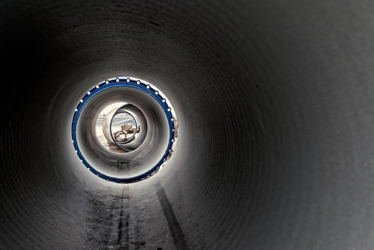Chicago Considers 100-Year Deal To Provide Drinking Water To Suburb


One of the country’s largest cities is considering a deal that would have a major impact on its use of drinking water over the next century.
Joliet, Illinois, a southwestern suburb of Chicago with a population of nearly 150,000, recently elected to build a 31-mile pipeline to Chicago’s drinking water supply from Lake Michigan and strike a deal that would see Chicago provide its drinking water far into the future. A critical committee within the Chicago City Council has now put its weight behind a 100-year drinking water deal with Joliet.
“The Chicago City Council Finance Committee approved a 100-year pact to supply Lake Michigan drinking water to Joliet, in a deal that will bring approximately $24 million to $37 million a year in new revenue to the city once Joliet completes construction on the pipeline and other infrastructure in 2030,” CBS reported.
The deal also offers Joliet the right to terminate or negotiate terms after 50 years. The pipeline and related infrastructure is estimated to cost it $600 million to $800 million.
Chicago officials emphasized that, from their city’s perspective, sharing the drinking water source would be financially advantageous.
“[Chicago Chief FInancial Officer Jennie Huang Bennett] said the project likely will benefit Chicago residents in terms of water rates, by sharing the costs of maintaining the city’s system with a larger pool of suburbs that get Lake Michigan water from the city,” per CBS. “The city’s water purification plant is currently operating at about half capacity, and Bennett said the city would like to get more suburbs to tap into its drinking water system to help offset the costs of maintaining those plants.”
But some fear that as more suburbs tap into Lake Michigan and other source water stressors ensue, there may not be enough supply for everyone.
“Illinois operates well below its Lake Michigan water allocation, but as the state plans for future water use, there is one unknown: climate change,” the Chicago Tribune reported. “Increased precipitation can affect how much water Illinois can withdraw from Lake Michigan, and runoff can alter water quality. Hot summers correlate to an increase in water demand. Cold snaps, like [February’s] stretch of subzero temperatures, pose their own threats when already leaky systems encounter main breaks.”
Though it appears that both sides are in favor of a 100-year drinking water source agreement, those who depend on Lake Michigan will likely be watching the deal closely as it develops. One day, there may not be enough for everyone.
To read more about how source water is allocated in places where it’s imperiled, visit Water Online’s Water Scarcity Solutions Center.
